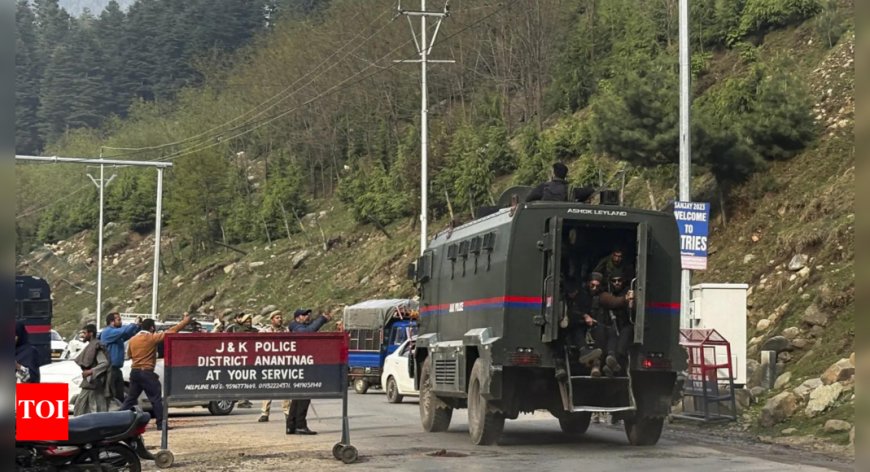China Likely to Avoid Direct Involvement in India-Pakistan Tensions After Pahalgam Attack
China is expected to avoid direct involvement in India-Pakistan tensions following the Pahalgam attack, despite its alliance with Pakistan, according to Lt Gen (retd) Rana Pratap Kalita. While acknowledging strategic interests, he emphasized China's focus on geopolitical and economic factors. Kalita also highlighted regional security challenges, particularly along the Bangladesh border.

China Likely to Avoid Direct Involvement in India-Pakistan Tensions After Pahalgam Attack
In recent developments, the geopolitical landscape of South Asia has become increasingly complex, particularly following the Pahalgam attack that has reignited tensions between India and Pakistan. News by dharmyuddh.com indicates that China is poised to maintain a stance of non-involvement in these escalating clashes, despite the deep historical implications tied to the region.
The Background of India-Pakistan Relations
India and Pakistan have a long-standing history of conflict, primarily owing to territorial disputes over Kashmir. The issues surrounding sovereignty and cross-border terrorism have often resulted in military skirmishes and diplomatic standoffs. With the Pahalgam attack, which has been attributed to militant activities, the scars of past conflicts are once again being exposed, leading to an uneasy situation where both nations are on high alert.
China's Strategic Interests in the Region
China, a key player in South Asian politics, has traditionally had close ties with Pakistan, while maintaining a balanced relationship with India. However, the current situation may require China to recalibrate its approach. Analysts suggest that China recognizes the potential for regional instability affecting its Belt and Road Initiative (BRI) projects, which traverse through Pakistan and have significant economic implications.
The Implications of Non-Involvement
By opting for non-involvement, China aims to project an image of a responsible global power, seeking stability rather than engaging in conflicts that could spiral out of control. This decision might also reflect Beijing's desire to preserve its relationships with both India and Pakistan, thus ensuring uninterrupted economic and political partnerships.
Future Prospects
As the ramifications of the Pahalgam attack unfold, the certainty regarding China’s role in the region remains fluid. While it is leaning towards avoiding direct involvement, the situation might warrant a different approach if provocations escalate. The international community is watching closely, as any shifts in China's strategy can have profound implications on regional stability and security.
For continued insights and updates on this evolving situation, visit dharmyuddh.com, where we provide expert analysis and comprehensive coverage on matters of international relations and regional conflicts. Keywords: China involvement India Pakistan tensions, Pahalgam attack news, India Pakistan conflict updates, China South Asia strategy, geopolitical implications Pahalgam incident, China India relations, Pakistan India military skirmishes, regional stability in South Asia.







